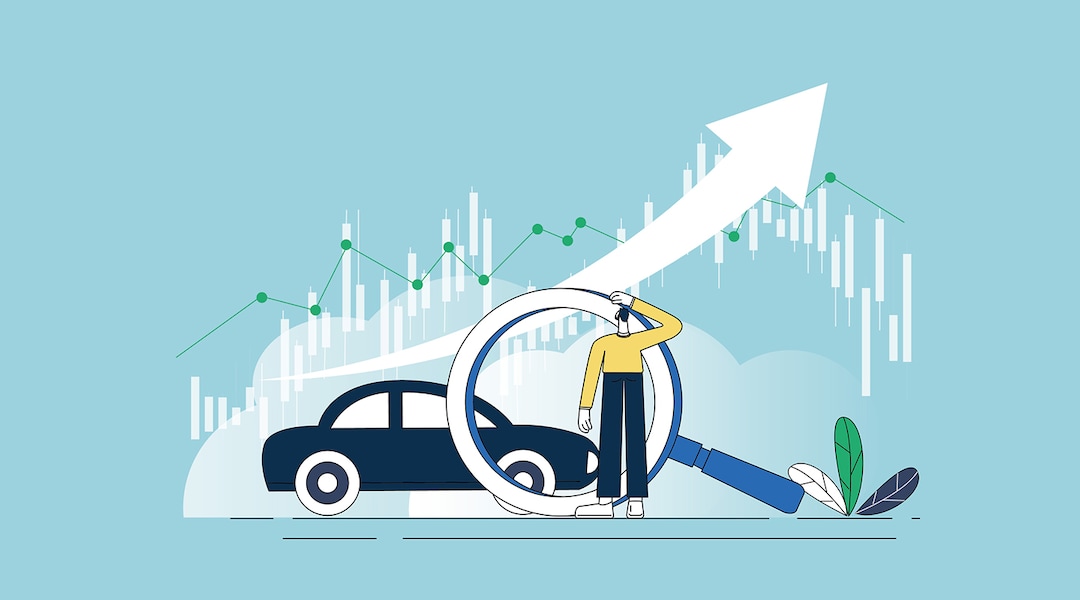Does leasing a car build credit?

Quick insights
- Securing a lease and managing it responsibly can help improve your credit score over time.
- Leasing a car can impact your credit negatively at first but can ultimately be an opportunity to build your credit.
- Financing a vehicle can affect your credit in positive and negative ways, but the choice between financing and leasing is up to you.
Leasing a car can have positive and negative effects on your credit. The initial credit inquiry could hurt your credit score slightly, but don’t reach for the panic button on your car key fob. In this article, we’ll break down how leasing a car affects your credit.
How does leasing a car affect your credit?
Leasing a car has pros and cons but can help you build your credit over time in a few ways. Here’s what you can expect.
The initial credit inquiry
When you decide to lease a car, the leasing company or dealership will typically conduct a hard inquiry into your credit report. You approve this when you apply for the lease. The hard inquiry that is conducted as part of your application review will give potential lenders access to your credit report. The information in it, such as payment history and total outstanding debt, will be reviewed. This review in and of itself doesn’t affect your credit but could influence the approval and terms of your lease, including your interest rate.
The impact of a hard credit inquiry is usually a small and temporary decrease to your credit score. Your score should bounce back over time when you practice healthy financial habits. If you’re shopping around for a lease and have multiple credit inquiries, you may worry about a major impact to your score. However, this won’t be the case if they’re conducted within a 14-day frame because most credit scoring models will count the related inquires as one.
Broadening your credit mix
One aspect of your credit that factors into your credit score is your credit mix. Everyone’s credit mix is different—it could include student loans, a mortgage, credit cards, etc. An auto lease could diversify the mix of credit accounts that are recorded on your credit report. A variety in your credit mix can have a positive impact on your credit score and future credit applications.
Potential negative impact
Once you secure a lease, your account and monthly payments will be reported to the credit bureaus. Missing lease payments can result in a negative entry on your credit report, causing your credit score to decrease. Conversely, consistently making payments by the due dates can have a positive impact on your credit score over time.
What credit score is needed to lease a car?
The specific credit score required to lease a car can vary depending on the leasing company, the type of vehicle and even economic conditions at the time you apply. In general, the terms of a lease may vary based on your credit score and the information in your credit report.
It’s important to note that VantageScore® and FICO® credit score ranges are general guidelines for what is considered “good” and “poor” credit. Lenders have their own criteria and credit score thresholds, and credit evaluations normally consider more than just scores: overall credit history, debt-to-income ratio, etc.
Leasing vs. buying a car: Which has a greater impact on your credit score?
Leasing and buying a car can have similar impacts on your credit score, both at the time you apply and over the course term of your lease or loan contract. Applications for a vehicle require a hard inquiry, whether you want to lease or buy. The effects of a hard inquiry on your credit score in either case may be similar. Plus, soon after you sign a lease or loan contract, the new line of credit may broaden your credit mix and, in turn, improve your credit score.
Whether you lease or buy, you agree to make monthly payments over a period of time. Paying in full and on time is important for your credit, regardless of whether you lease or finance. That’s because positive and negative payment history affect your credit score accordingly.
Improving your credit to be eligible for a lease
Improving your credit may take some time, so it can be essential to start the process well before you plan to lease a car. Be patient and persistent in your efforts and monitor your progress by checking your credit score regularly. As your credit score improves, you could be in a better position to qualify for a car lease with more favorable terms.
In conclusion
A lease application involves a hard inquiry, which could cause a brief drop in your credit score. However, getting approved for a lease presents opportunities to build credit over time. For one, you’ll have a chance to make monthly payments on time. This can give you some positive payment history and impact your credit score accordingly. The vehicle lease itself could also add variety to your credit mix, another important factor in improving your credit score.


